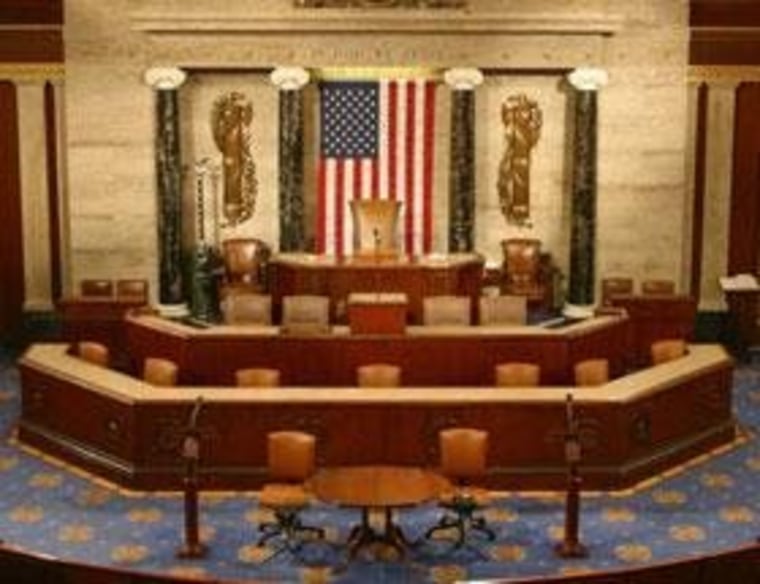Senators were warned yesterday that if they let the payroll tax break expire at the end of the month, the burgeoning economic recovery will take a "very sharp" hit.
Congressional Republicans may very well let it happen anyway.
After a bitter fight in December, GOP leaders accepted a two-month extension of the payroll cut, giving policymakers a new deadline -- Feb. 29, three weeks from today -- to agree to a year-long deal. As of mid-January, the prospects for an agreement looked pretty good, in large part because Republicans didn't want to be on the hook for a middle-class tax increase in an election year.
Striking an acceptable deal, however, is proving to be far more difficult than even some of the key officials expected.
Members of the payroll conference committee fought to a draw in their fourth public meeting Tuesday, making no progress toward finding a way to pay for a payroll tax holiday and dimming the prospects that a deal can be struck by the month's end.A Senate Democratic offer on unemployment insurance issues is in the works, and Members said they want to pick up the pace of the talks. But -- barring a major breakthrough in the next few days, Members acknowledged -- the latest high-stakes negotiation in a year of botched cross-party talks will go the way of the Joint Committee on Deficit Reduction: abject failure."I was very discouraged after today's session," conferee Rep. Henry Waxman (D-Calif.) said. "We may be facing what Congress has faced every step of the way -- in the super committee, on the debt ceiling."
In each of the previous fights, a bipartisan agreement proved to be impossible because Republican lawmakers were unwilling to make concessions as part of a larger compromise.
At issue is a package with a price tag of nearly $200 billion, which would include a payroll tax cut for the rest of the year, an extension of emergency unemployment benefits, and the Medicare "doc fix" on physician reimbursements. As is always the case, the fight between Democrats and Republicans is over how best to pay for the bill.
In private, House Republican conferees want to limit the negotiations over how to pay for the extenders to measures that have already passed at least one of the two Houses of Congress. This wipes measures like higher taxes on wealthy Americans, and war savings off the table, while preserving partisan GOP-backed payfors, including freezing federal worker pay, and increasing Medicare costs for some beneficiaries."The 'outside of scope of conference' argument they're trying to make is silly," says one Dem aide briefed on the discussions. "They can't say out of one side of their mouths that Dems don't have any proposals and then consider any we provide outside scope of conference. [Sen. Bob] Casey offered a 1% surcharge on millionaires and Dems offered to pay for [the Medicare doc fix] using [savings from winding down overseas military operations]."
There's also, of course, a political element to all of this. A New York Times editorial argued that "extending the tax break would represent a victory for President Obama, who has been championing it. That remains intolerable to many Republicans." Senate Democratic leaders argued along similar lines yesterday, accusing the GOP of trying to derail the recovery on purpose.
One angle to keep an eye on is the leverage Democrats believe they have in this fight. Republicans generally concede they're playing a losing hand -- Sen. Jim DeMint (R-S.C.) said yesterday his party "can't win the argument" -- which makes it much tougher for the GOP to execute their traditional negotiating strategy ("give us everything we want or else").
Dems, in other words, are less likely to accept a bad deal and more likely to wait until the last minute, precisely because they saw Republicans cave under similar circumstances in December.
